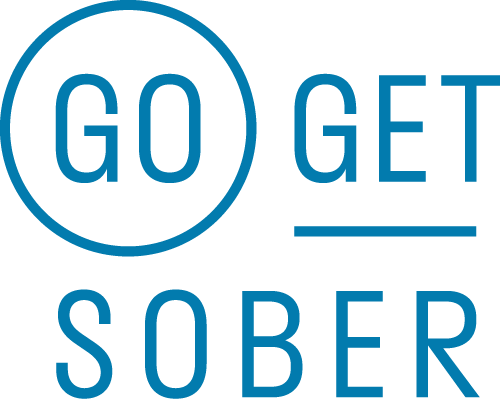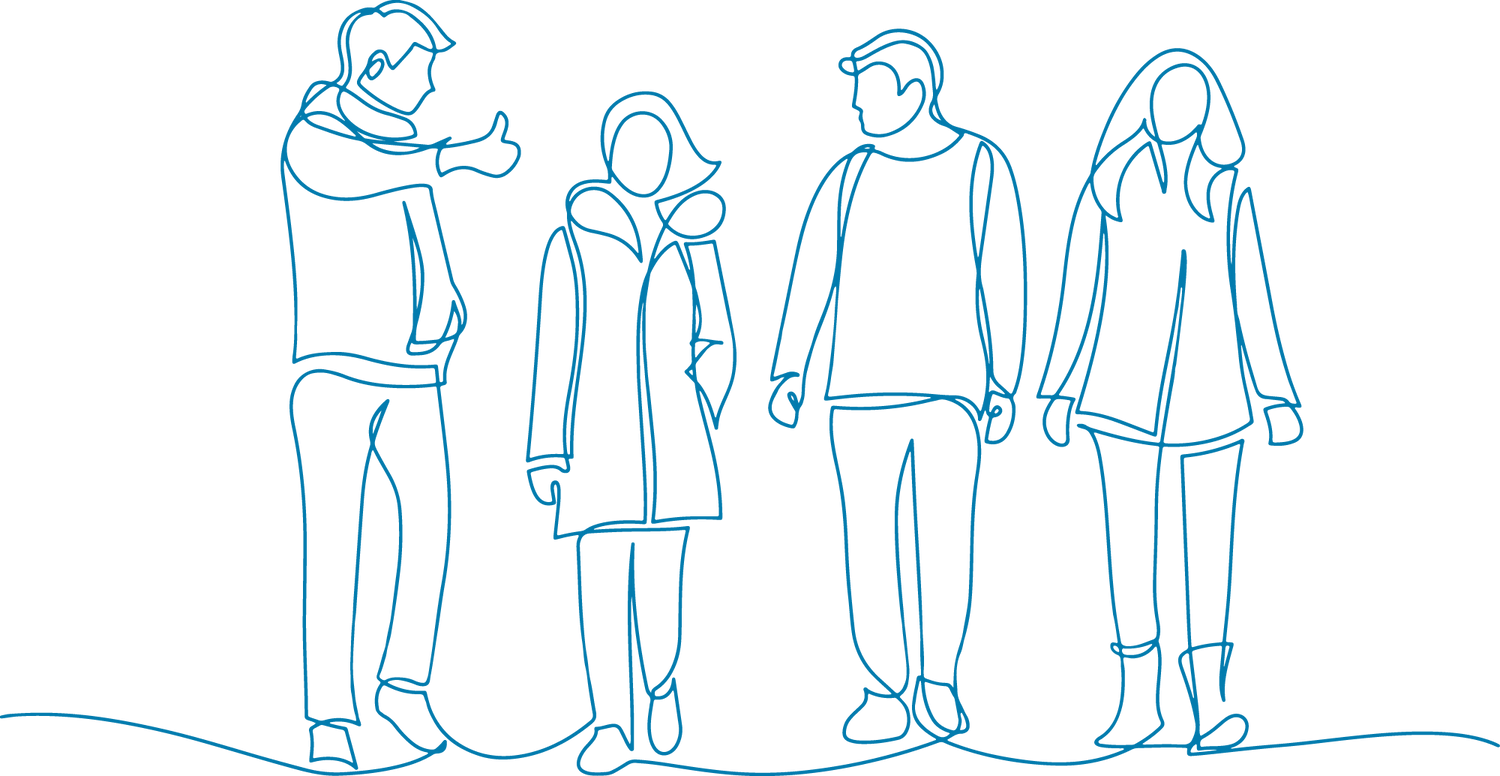In this blog, I share effective strategies to quitting alcohol as well as a simple 10-Step Action Plan to help you stop drinking completely.
There are lots of reasons why people decide they want to quit drinking:
- it might be they want to lose weight;
- they might have a medical condition and alcohol is harmful to them;
- they might be on medication that reacts badly with alcohol;
- it could be part of a healthy lifestyle choice;
- or it could be that they've recognised they have an unhealthy drinking habit and want to cut alcohol out of their lives and get sober.
Whatever your reasons for stopping drinking and wanting to live life alcohol-free, there are some approaches which will help you to do it more easily.
Effective Strategies to Help Stop Drinking Alcohol
1. STAY MOTIVATED
Changing any habit can be challenging as habits become programmed into us at an unconscious level and can be tricky to shift with will-power alone. To stay strong, focused and resilient, you need to feel motivated and positive. There are many ways to boost your motivation and keep it high but here are a couple for you to think about:
Paint a positive picture
People who struggle to stay sober have usually made it more challenging than it needs to be by telling themselves that it’s going to be hard work, that they’re going to be losing out on so much, that they’ll feel deprived and that life sober is going to be a daily struggle.
It’s much more motivating when you see it as a healthy lifestyle choice, much in the same way as giving up meat or sugar. When you focus on all the benefits that living life sober will bring you and you remember all of the bad stuff that drinking brought you, it makes it much easier to stick with it and enjoy it.
For example, if you’ve been focusing on all the things you’ll be missing out on by getting sober, just remind yourself of all the things that you’ve been missing out on because you’ve been drinking. There’s always a way to reframe your thinking so that living sober becomes the desirable and motivating option.
Focus on the benefits that living sober will bring you
It can really help to list all of the things you don’t want or don’t like about drinking. Maybe you’re sick of feeling ashamed or guilty. Maybe you’re terrified of what alcohol might be doing to your body and mind. Maybe you want to avoid hangovers and poor quality sleep. By getting really clear about all the bad stuff you’ll be leaving behind when you stop drinking, you really pump up your motivation.
And, alongside this list, it’s also good to list the things that you’re going to gain by quitting alcohol. So, as well as having a clear understanding of everything you don’t want anymore, you have a clear understanding of everything you do want.
There is a long list of potential benefits to stopping drinking which include the following AND you can add your own too!
- Better brain function and memory
- More control over choices and decisions
- Better physical health
- Better mental and emotional health
- Clearer skin, shinier hair, brighter eyes
- More money in the bank
- Better relationships
- Higher self esteem and self confidence
Reward and treat yourself
It’s important to record your wins and successes. Each time you overcome a challenge, whether it’s something simple like coming out of the supermarket with no booze in your trolley or whether it’s something major like getting through a wedding or a party sober, recording it and congratulating yourself on each success helps keep you motivated.
Make sure you're rewarding and treating yourself. It’s important to have things to look forward to. So, it might be that you put aside all the money you’re saving and reward yourself with a treat each day, each week, each month or even at the end of the year. When you keep yourself motivated by acknowledging your achievements and giving yourself rewards, staying sober is much easier!
2. PLAN, PREPARE AND PRACTISE NOT DRINKING
Learning to live life sober after you’ve spent some time in an unhealthy relationship with alcohol is like learning any new skill. Like learning to play a musical instrument, learning a new language or learning a sport, it takes preparation, focus and practise before you become really good at it.
Planning and preparing
One of the ways you can prepare is to identify the jobs alcohol has been doing for you and plan other, more healthy ways of getting those jobs done.
Example: If alcohol has been helping you to feel socially confident, you need to find other ways of building your social confidence. Perhaps you need to challenge yourself by putting yourself into situations that make you uncomfortable but help you become more confident. Perhaps you need to do some kind of course that helps you build self-confidence. Maybe you even need to learn to become more comfortable with being quiet and shy.
Another way you can prepare is to spend time at the start of each day identifying when your drinking triggers are likely to occur. Then plan what you can do instead of drinking when those triggers are pulled.
Rehearsal is also an important part of preparing to stop drinking. You need to plan what you’re going to tell people. Maybe you’re happy to let people know what you’re doing and how they can help you and you have a good, supportive network of friends and family around you who you can be completely honest with. Or maybe you don’t want people to know that this has been an issue for you and you need to plan what you’re going to say to people about why you’re not drinking.
Coming up with reasons and justifications in advance and rehearsing what you’re going to say out loud helps you feel much more confident when you’re actually dealing with other people’s questions and might be feeling pressured to go with the flow and give in.
For instance, I know people who say they can’t drink this week because they’re on medication. Or, they can’t drink tonight because they have to give someone a lift later or they have an important meeting in the morning that they want to perform well at. Or, they’re on a health, fitness or nutrition programme for 6 weeks and alcohol isn’t allowed. Whatever you choose to tell people, preparing and rehearsing in advance is crucial to give you the self-confidence to sail effortlessly through any challenges.
Practise
When you’re learning to play the violin, you don’t expect to have your first lesson and then walk into an orchestra and start performing a Beethoven masterpiece in front of an audience. You’d be asking for trouble! Your lack of skill would result in mistakes, you’d get it wrong and you’d end up feeling embarrassed, self-conscious and bad.
It’s exactly the same with not drinking. There’s no point launching yourself into challenging situations before you’re ready. You have to practise and build up your skill level day by day, bit by bit until you’re ready to face each new level of challenge. It’s important to make life as easy on yourself as possible while you’re learning. Give yourself manageable challenges that lead to success. That success then builds your confidence and boosts your positivity and motivation.
You might even make mistakes and, if you do, need to accept that these are all part of the learning process. As long as you’re seeing it as a skill you need to practise and you’re reflecting on why the mistake happened and how to avoid the same mistake in the future, you can learn from it and do things differently next time without needing to beat yourself up or feel guilty.
You also need to have realistic expectations. Those of us who have been sober for years tend to wax lyrical about how wonderful and easy sober living is because our lives have been transformed by ditching the booze. But not everyone can expect this amazing life of freedom and potential to happen overnight. For some, it can take practice, commitment, resilience and time.
3. RETRAIN YOUR BRAIN
Because unhealthy drinking habits have been programmed into our minds at an unconscious level, we need to do some re-programming. By retraining our brains to expect something different, we make it easier to change our behaviours and reactions.
Mindfulness
One way to retrain our brains is to get mindful. By getting into a mindfulness habit, we learn to let go of unhelpful thoughts which gives us more control over how we respond to what's going on around us.
Example: before I learnt mindfulness techniques, if I was stressed and was walking past a pub, my thought process might have gone something like this;
- a cosy pub = a couple of glasses of red wine
- a couple of glasses of red wine = feeling super-relaxed and lovely
- feeling relaxed and lovely = no more stress
These thoughts would have coincided with a feeling of desire – a pull in my belly to walk into the pub and start drinking. I would have been in the pub and at the bar before I knew it – on automatic pilot and with no conscious control over my actions.
Once I’d become more mindful and could recognise my thoughts, I was able to let go of them – not act on them – and take more control over my decisions and actions in everyday life.
There is a growing body of evidence which suggests that mindfulness practice rewires neural pathways and connections in the brain and changes the brain’s structure. You can practise mindfulness in all sorts of ways:
- Yoga
- Meditation
- Dog-walking
- A craft or skilled activity that involves deep levels of concentration
- Anything that pulls you into the moment you're in and helps you forget everything else
Another way to retrain your brain is to change your behaviour. So, the more I practised walking straight past the pub even when I was feeling stressed and going through those old thought processes, the more I ignored those thought processes, the more my brain learnt to expect something different. Eventually, it was rewired so that it no longer links a feeling of stress, the sight of a pub with a desire to drink.
Create new expectations
Another way of retraining your brain is to identify the perceived benefits that drinking was bringing you and to create and develop different expectations.
Once you have identified the perceived benefits you were getting from drinking, you can decide on other ways to realise those benefits. Then you can practise and repeat these new behaviours and habits until they become just as automatic as the old drinking habit.
For example, if one of the benefits alcohol was giving me was to help me de-stress, I need to find healthier ways to de-stress and relax. I could try some physical activity or exercise, some fresh air, some mindfulness, an audio book, a bath and some music and candles, a phone-call with a friend, some gardening, some knitting, joining a sports team - the list of potential alternatives is massive! Once I've decided what I'm going to do instead of drinking to de-stress, I simply need to keep practising that activity until it becomes natural and automatic and I don't think about drinking anymore because new neural pathways have been created in my brain that lead to the new behaviour in response to the old trigger.
4. DISABLE YOUR OLD DRINKING TRIGGERS
A trigger is a feeling, a situation, a place, a person or an event that prompts you to want to drink. Over the years, these triggers become so unconscious and automated that we sometimes don’t even realise they’re happening.
To stop drinking successfully, you have to start identifying your drinking triggers and plan alternative sober activities for when they occur.
Once you’ve planned what you’ll do differently when you’re triggered, you can boost your chances of dealing with it successfully sober by mentally rehearsing what you’ll do differently instead of drinking. This helps to disable that trigger.
Mental rehearsal is a way of imagining doing something successfully so that your brain expects that reality to happen.
Example: I used to experience a major trigger to drink at 6pm on a Saturday evening. I’d have the radio on and I’d pour myself a large G&T while I was preparing a meal. I’d then look forward to a bottle or two of wine with the meal and would “chill” on the sofa for the rest of the evening. This pattern had been going on for years.
In order to disable this trigger, I mentally rehearsed (imagined) myself in the kitchen, I imagined noticing that it was 6pm, I imagined hearing the radio and preparing the meal and imagined pouring and drinking a tonic water with ice and lemon. I then imagined drinking a herbal tea with my meal on the sofa instead of wine. By doing this, I rewired my brain to believe that it was possible to do things differently. The brain doesn’t know the difference between a memory and an imagined event, so by imagining things happening differently, you’re actually tricking the brain into believing it’s real. This then creates the likelihood of success.
You also help to disable triggers by practising doing things differently. So, the more often I drank tonic water and herbal tea on a Saturday night, the more the 6pm trigger was disabled until eventually it just wasn’t a trigger anymore.
5. DEVELOP A HEALTHY RELATIONSHIP WITH YOURSELF
People who have an unhealthy relationship with alcohol usually have an unhealthy relationship with themselves. I used to reach for alcohol as a way of feeling better about myself because there was a part of me that didn’t like myself very much.
By developing a healthy and loving relationship towards yourself you reduce or eliminate the need to use alcohol to feel better or to fill a hole.
There are many different ways of doing this:
- Learning to sit and be with yourself (like meditation or mindfulness)
- Getting some therapy, coaching or counselling
- Taking care of yourself, nurturing yourself and doing more activities that help you feel good about yourself
- Creating boundaries around yourself – for instance, practising saying no to other people and putting yourself first
By putting all of these tips and strategies into action, you can stop drinking more easily and are more likely to stay sober successfully.
10-Step Action Plan
Here’s a 10-Step Action Plan to help you stop drinking and stay stopped:
- Make a list of all the jobs alcohol has been doing for you.
- List some alternative and healthier ways of getting these jobs done.
- Make a list of all of the benefits to you of living life sober: what will you leave behind and what will you gain?
- If you haven’t already stopped drinking, set a date to do so and put it in your diary. If you need support from other people, let them know what you’re doing and ask them for the support you need.
- Do what you need to do to prepare for that date. Maybe you need to get rid of all the alcohol in the house. Maybe you need to cancel any social commitments that you would find too challenging. Maybe you want to plan some kind of symbolic activity to mark the start of your new sober life.
- Plan for your first week sober – list what, where and when your potential “drinking triggers” might be & plan what you’re going to do instead of drinking when these triggers are pulled.
- Book plenty of healthy, alternative activities in your diary that will not only provide distractions but will keep you busy and be healthy for you.
- Plan, prepare and rehearse what you’re going to say to other people about what you’re doing. Maybe you don’t want others to know this has been an issue so you need to rehearse some reasons for why you’re not drinking (eg, you’re on a healthy lifestyle challenge and alcohol isn’t allowed).
- Plan healthy and nurturing treats and rewards that will make you feel good
- Keep a record of all your “wins” and successes and progress, add to it and refer to it every day.
IMPORTANT NOTE
If you think you have a physical dependency on alcohol (in other words, if your body reacts badly when you stop drinking) you need to seek medical advice and support to safely physically detox your body from alcohol before you can start practising your new sober habits and working through these tips.
Talk to your doctor or an addiction specialist to learn more.
If you’re physically dependent on alcohol, withdrawal symptoms can include:
- Headache
- Shaking
- Nausea or vomiting
- Sweating
- Anxiety and restlessness
- Stomach cramps and diarrhoea
- Trouble sleeping or concentrating
- Elevated heart-rate or blood pressure
You should seek emergency medical help if you experience any of the following withdrawal symptoms as they might be a sign of a rare and severe form of alcohol withdrawal called delirium tremens, or DTs. This condition causes dangerous changes in the way your brain regulates your circulation and breathing, so it’s important to get to the hospital right away:
- severe vomiting
- confusion and disorientation
- fever
- hallucinations
- extreme agitation
- seizures or convulsions
However, it’s important to remember that most people who have an unhealthy relationship with alcohol don’t have a physical dependency. For most people, it’s more a psychological issue or ingrained and automated habit that’s been programmed into their unconscious mind.



1 comment
Good advice will try them